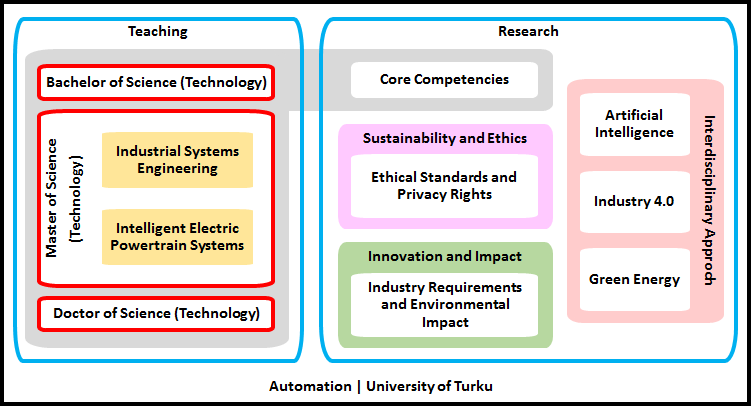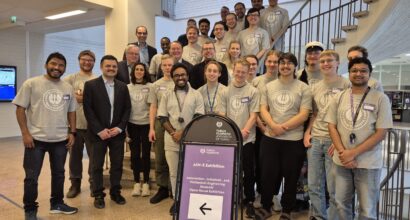Home
Automation refers to a programmed, independently functioning device or a system. In other words, it is the creation and application of technology to perform tasks to monitor and control the production and delivery of products and services. It comprises all processes and work equipment that enable systems to run automatically. Human intervention is minimal. For further details, check out for example the website of the Finnish Society of Automation.
Strategy
The University of Turku offers automation engineering that includes teaching and research in control and automation, model-based/optimal control, industrial systems engineering, intelligent electric powertrain systems, and other relevant areas. The research and teaching strategic aims are closely related to the regional industrial stakeholders’ needs in the broadly understood region of Southwest and Western Finland and beyond. The curricula have been designed in response to the Ministry of Education and Culture’s decision that granted the University of Turku educational responsibility in automation and electrical engineering.
Research and Teaching

Scope
Research and teaching aims are aligned with core competencies in control and automation, model-based/optimal control, industrial systems engineering, intelligent electric powertrain systems, and other relevant areas. The key objectives include research and development for marine industry applications, unmanned vehicles, AI-driven control systems, efficient manufacturing, sustainable industrial innovations, turbines, and compressors for green energy and heat generation.
Interdisciplinary Approach: Embrace an interdisciplinary approach by integrating expertise from multiple domains such as AI, green energy, industry 4.0, mathematical modelling, and optimized electrical machine design. Encourage cross-disciplinary collaboration to tackle complex research challenges holistically.
Focus on Innovation and Impact: Prioritize research that has the potential to drive innovation, address industry needs, and have a positive impact on society and the environment. Emphasize applied research with practical implications for industry stakeholders, policymakers, and end-users.
Sustainability and Ethics: Prioritize research that promotes sustainability, environmental responsibility, and ethical considerations. Ensure that research activities adhere to ethical standards, respect privacy rights, and prioritize the well-being of individuals and communities affected by the research outcomes.
Philosophical References: Exploration of the relationship between humanity and robots. This can be interpreted in the context of the Industrial Revolution: 3.0 Automation → 4.0 Digital Machines and Automata → 5.0 Personalization.
News



